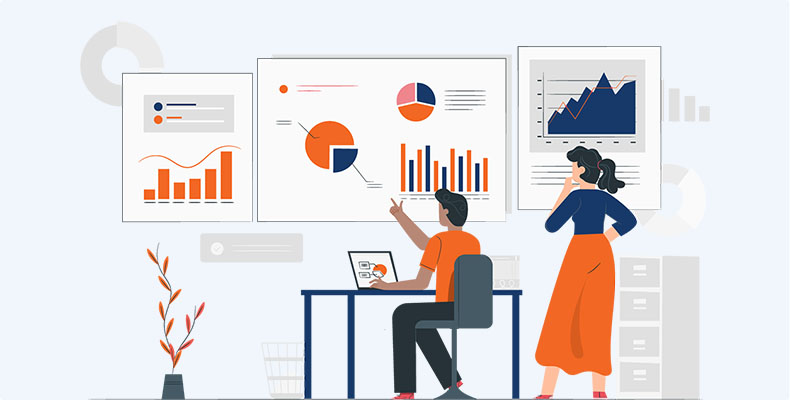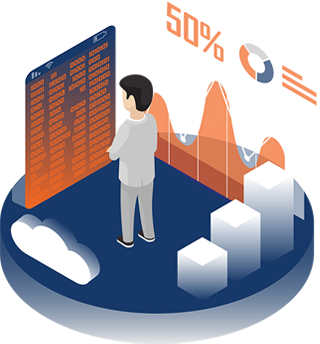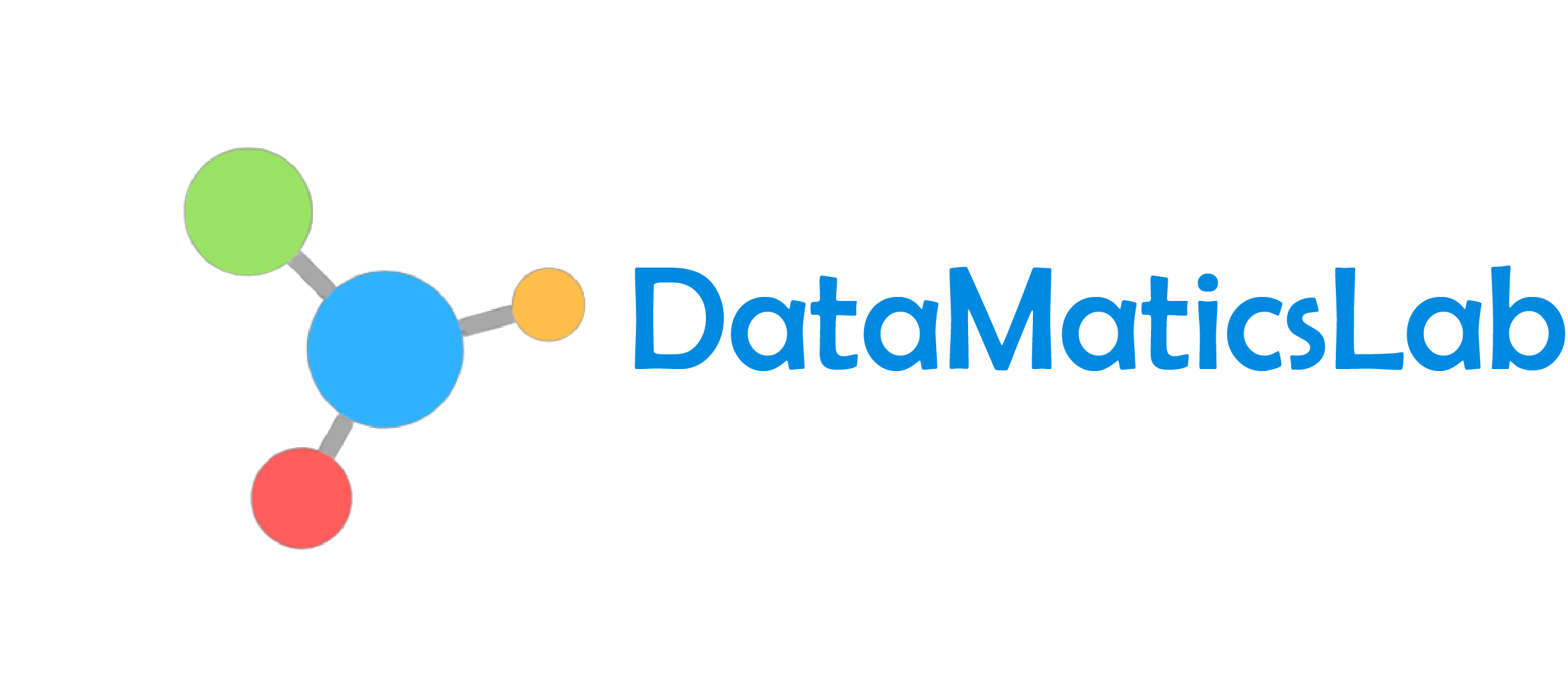
Predictive Analytics
Predictive analytics is an advanced form of descriptive analytics. It leverages current data and historical data to predict future events or outcomes. Today, what drives predictive analysis technology is machine learning. A subset of Artificial Intelligence, machine learning is a method of devising complex learning algorithms and models reliant on patterns and inference to perform a task, like predictive analysis, without explicit instructions. Machine learning (and its subset, deep learning) is essentially modeled after neural networks in the human brain.
Predictive analytics extracts information from data sets to discover relationships, recognize patterns, forecast trends, find associations, etc. This allows us to anticipate the future and make the right decisions.
Advanced and predictive analytics can be applied to a variety of use cases, ranging from classic customer value and success forecasts, the prevention of contract termination or price, sales and demand forecasts to new tasks such as the prediction of machine failures, social media monitoring and evaluation, and predictive policing.

Benefit of Services
Predictive analytics is the branch of the advanced analytics the use of which is to make predictions about unknown future events.
- Business Benefits of Predictive Analytics
- Gain a Competitive Advantage
- Reduce Risk
- Reduce Cost
- Increase Production and Operational Efficiency
- Improve Safety and Compliance
- Understand Customers and What They Want
What Is Included
Everyone has competitors and a great way to stay ahead is to know what is happening in your organisation. By accessing more data insights, your data will become more valuable and you will be able to make strategic, data-driven business decisions rather than basing them on intuitions. Predictive analytics are not only going to answer your questions but also tell you why it has happened and what might happen next. You can use this information to your advantage and use it to improve areas of your business that you probably didn’t even know needed improving. Predictive analytics are the way of the future and are becoming increasingly popular across all sectors.
It is true that BI tools will give you valid information and will give you insights about your business, but those insights will be limited to historic ones. The answers to most of our questions lie in the future and with predictive analytics we can get our answers in the present.
Advanced analytics describes data analysis that goes beyond simple mathematical calculations such as sums and averages, or filtering and sorting. Advanced analyses use mathematical and statistical formulas and algorithms to generate new information, to recognize patterns, and also to predict outcomes and their respective probabilities.
Predictive analytics is a sub-division of advanced analytics and focuses on the identification of future events and values with their respective probabilities.
Advanced and predictive analytics can be applied to a variety of use cases, ranging from classic customer value and success forecasts, the prevention of contract termination or price, sales and demand forecasts to new tasks such as the prediction of machine failures, social media monitoring and evaluation, and predictive policing.
It is the process of using data analytics to make predictions based on data. This process uses data along with statistics, analysis, and machine learning techniques to create a predictive model for predicting future events.
